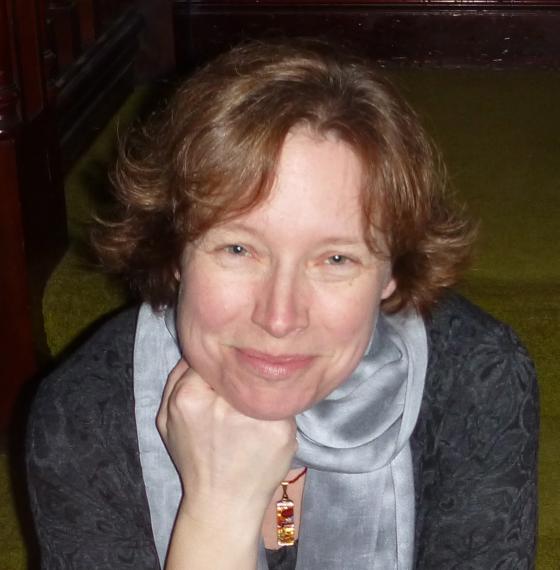Susan Brown

Description
Susan Brown’s major areas of expertise are digital humanities and critical infrastructure studies, Victorian writing and women’s writing, feminist theory. She holds a Canada Research Chair (Tier 1) in Collaborative Digital Scholarship which sponsors The Humanities Interdisciplinary Collaboration Lab (THINC Lab), home to DH@Guelph and the IF (Intersectional Feminism/Interdisciplinary Feminism) series. Based in the School of English and Theatre Studies, she teaches in both English and the Culture and Technology Studies program.
Her digital humanities research centres originates in an ongoing interdisciplinary collaborative research endeavor and one of the longest-running digital humanities projects—the Orlando Project (www.ualberta.ca/~orlando), which published its flagship literary historical textbase online with Cambridge University Press in 2006 (orlando.cambridge.org) and continues to innovate in the production of intersectonal feminist digital scholarship. Scholarly reviews have heralded the textbase as setting a new standard both in its scholarly area and in its digital delivery. This research has received funding from the Social Sciences and Humanities Research Council of Canada’s Major Collaborative Research Initiatives, Standard Research Grants, and Image, Text, Sound Technology programs, and from the Canadian Foundation for Innovation. With the co-editors of Orlando, Patricia Clements and Isobel Grundy, she received the Society for Digital Humanities/ Société pour l'étude des médias interactifs Outstanding Achievement Award in 2006 for the leadership of a project of “international significance” that is “an impressive example of a project experimenting with computing in the context of meaningful humanities inquiry and the site for training for graduate students in digital scholarship.”
Her digital humanities research engages from an intersectional feminist perspective with the use of semantic technologies for cultural scholarship. Her critical infrastructure work explores how online systems for creating, enhancing, and sharing cultural knowledge can advance collaborative knowledge production, diversity and inclusivity, respectful data creation and dissemination, sustainable access to cultural scholarship, and best practices in research data management and preservation. She directs the multi-institutional Canadian Writing Research Collaboratory (CWRC) and the Linked Infrastructure for Networked Cultural Scholarship. She founded with colleagues at Guelph an interdisciplinary major in Culture and Technology Studies and The Humanities Interdisciplinary Collaboration (THINC) Lab.
Recent publications (often collaboratively authored) include:
- “Linking Out: The Long Now of DH Infrastructures.” Canadian Digital Humanities: Future Horizons. With Kim Martin and Asen Ivanov. Ed. Paul Barrett and Sarah Roger. University of Ottawa Press, 2023.
- “Afterword: The Landscape and the Horizon.” Canadian Digital Humanities: Future Horizons. Ed. Paul Barrett and Sarah Roger. University of Ottawa Press, 2023.
- “Graphing the Poetess.” Victorian Review, 2023. Victorian Review Forum special cluster on the poetess.
- “The Power to Structure: Making Meaning from Metadata through Ontologies.” With Erin Canning (first author), Sarah Roger, and Kim Martin. KULA 6.3 (2022).
- “Same Difference: Identity and Diversity in Linked Open Cultural Data.” International Journal of Humanities and Arts Computing 16.1 (2022): 1-16.
- “Categorically Provisional.” PMLA, vol. 135, no. 1, 2020, pp. 165-74.
- “Delivery Service: Gender and the Political Unconscious of Digital Humanities.” Bodies of Information: Intersectional Feminist Digital Humanities. Ed. Elizabeth Losh and Jacqueline Wernimont. Debates in Digital Humanities series. Ed. Matthew K. Gold and Lauren Klein. U of Minnesota Press, 2019. 261-85. DOI: https://doi.org/10.5749/9781452963792 Open access edition: https://dhdebates.gc.cuny.edu/projects/bodies-of-informatio
She has taught courses ranging from second semester to graduate level, on topics ranging from Victorian poetry, industrial fiction, women’s writing, feminist literary history, gender and genre, generic change, the serial novel, and the female bildungsroman and the representation of sexual assault in feminist theory and fiction to digital textuality, data and difference, networks, and intersectional feminist digital humanities. She has supervised MA and PhD students on topics including hypertext, the gothic, the Victorian novel, the New Woman, detective fiction, Victorian fiction and imperialist discourse, video games, Instapoetry, and domestic assault in Victorian fiction. She received a University of Guelph Faculty Association Special Merit teaching award in 1999 for the use of digital methods in her teaching. She founded the DH@Guelph Summer Workshops and has taught various courses at the Digital Humanities Summer Institute at the University of Victoria. With colleagues she co-founded the Culture and Technology Studies major at the University of Guelph.
Since joining the University of Guelph in 1991, she has contributed to various aspects of university administration, including membership on the Senate Awards Committee, Board of Graduate Studies committee, chairing on the College of Arts Awards Committee and the Senate Awards Editorial Subcommittee, and service on the Board of Governors. She has served on numerous hiring and selection committees, participated actively in graduate and undergraduate curriculum development. She has adjudicated for SSHRC, OGS, and internal scholarships and awards, as well as for international awards. She serves or has served on the Boards of the Canadian Research Knowledge Network, Compute Canada, and on the Researcher Council of the Digital Research Alliance of Canada, as well as on the editorial boards of the Victorian Review, Digital Scholarship in the Humanities, KULA, Digital Studies/Le Champs Numériques, the Poetess Archive, COVE (Central Online Victorian Educator), and NINES (Networked Interface for Nineteenth-Century Electronic Scholarship). She is past-president of the Canadian Society for Digital Humanities/Societé canadienne des humanités numériques and of the Constuent Organisations Board of the Alliance of Digital Humanities Organizations.